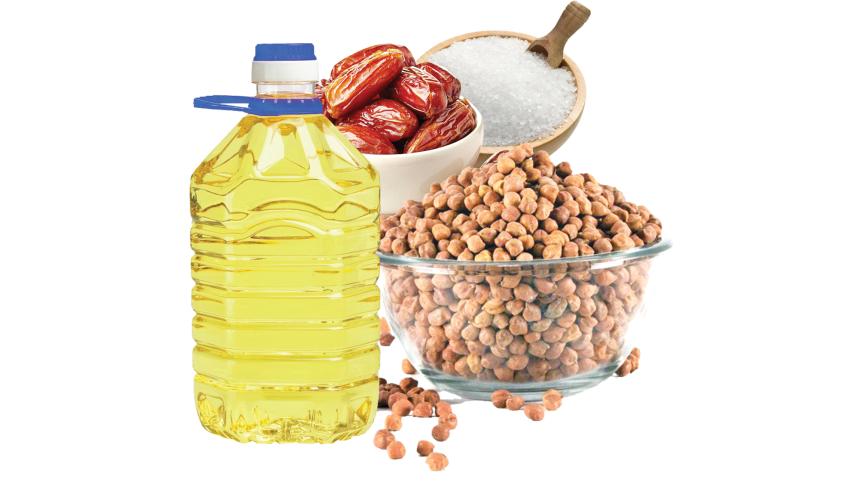Why raise the prices of Ramadan essentials now?

We are worried to notice the upward trend of the prices of Ramadan essentials well ahead of the start of the holy month. According to a report in this daily on February 17, 2022, the prices of Ramadan essentials such as edible oil, chickpea, dried pea, date and sugar have already started to rise in the market, despite being well-supplied. Traders and importers, however, are blaming the high costs of import for the hike. Reportedly, prices of all these commodities have increased in the global market due to lower production in the exporting countries, while the shipping costs have also increased.
According to data from the Chattogram Custom House, between December 2021 and January 2022, the import cost of palm oil, soybean oil, sugar, chickpea and other commodities have significantly increased. However, the data also shows that import of all these items has also increased during this time, except for the edible oil. For instance, between July 2021 and January 2022, about 144,000 tonnes of chickpea and around 305,000 tonnes of dried pea were imported. A year earlier, their imported quantities were 133,000 tonnes and 292,000 tonnes, respectively. The import of sugar also increased by 3.4 percent during this time. This means that there is an ample stock of these items in the wholesale market.
Because of the supplies, it is expected that wholesalers will sell their products at fair prices to the retailers, and retailers will not unnecessarily raise the prices during Ramadan. Because doing so would put an extra burden on people, especially those in the lower-income bracket, who already have their backs against the wall. Having failed to sustain their pre-pandemic income level, with lost jobs and steady source of income, many have been forced to compromise on their standard of living. The rising prices of daily essentials—such as rice, oil, lentils, vegetables, meat and fish—have already made their lives difficult. Now, if the prices rise again during Ramadan, how will they survive?
Therefore, it's time for the government to come up with some pro-people policies to help the low- and fixed-income people survive through this tough time. It needs to ensure market stability by establishing proper monitoring mechanisms. Fixing the prices of daily necessities and hanging up the price chart at every wholesale and retail market can prevent the traders from overcharging the consumers. The government also needs to make sure that unscrupulous syndicates cannot raise prices of food items by hoarding them before and during Ramadan. We believe it is definitely possible for a proactive government to prevent traders from unnecessarily increasing the prices of essentials.



 For all latest news, follow The Daily Star's Google News channel.
For all latest news, follow The Daily Star's Google News channel.
Comments